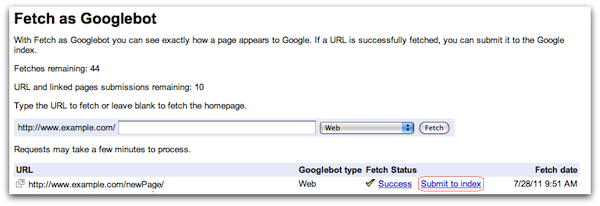
If you have launched a new website, updated a single page on your existing domain, or altered many pages and/or the structure of your site, you will likely want Google to display your latest content in its SERPs.
Google’s crawlers are pretty good at their job. If you think of a new article on a big domain, for example, the search engine will crawl and index any changes pretty quickly thanks to the natural traffic and links from around the web which will alert its algorithms to this new content.
For most sites, however, it is good practice to give Google a little assistance with its indexing job.
Each of the following official Google tools can achieve this. And each are more or less suitable depending on whether you want Google to recrawl a single or page or more of your site.
It is also important to note two things before we start:
- None of these tools can force Google to start indexing your site immediately. You do have to be patient
- Quicker and more comprehensive indexing of your site will occur if your content is fresh, original, useful, easy to navigate, and being linked to from elsewhere on the web. These tools can’t guarantee Google will deem your site indexable. And they shouldn’t be used as an alternative to publishing content which is adding value to the internet ecosystem.
Google’s Fetch tool is the most logical starting point for getting your great new site or content indexed.
First, you need to have a Google account in order to have a Google Webmaster account – from there you will be prompted to ‘add a property’ which


